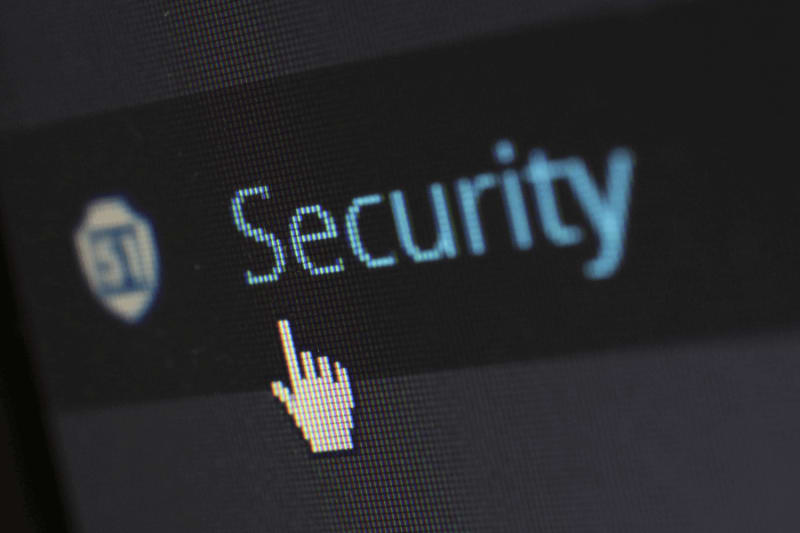When working at a business organization, you must use the best security software and the necessary policies to keep your data safe, as a simple glitch can cause you to expose confidential data. As cybercrime rates climb at an all-time high, businesses have started to focus on cybersecurity measures.
The challenge of maintaining data safety is also faced online. Following some cybersecurity measures can help you keep your data safe. You can also take cybersecurity programs to help you raise more awareness on how to keep your organization’s digital space safe from threats.
Read this article to learn about cybersecurity tips.
1. Keep your data protected
We all have personal identification information that we use on a daily basis. For example, it could be our credit card number or social security number. All these important information are urged to be kept private to prevent fraud or theft.
This principle also applies at your place of work, even if you work as a freelancer. Always remember that cyber criminals create fake email accounts and websites that may appear completely legitimate.
Some hackers can even gain access to a company’s social media account and send out messages from the original account. In all these instances, remember that you should not share private information that could lead to a data breach or security threat to the organization.
Similarly, stay alert while sharing any information or intellectual property with someone outside of the workplace.
If you receive any suspicious email, immediately report it to the IT department so that they can conduct an investigation of the email’s authenticity. You can also ask for assistance from IT on how you can destroy the data which no longer has any use.
2. Do not click on unknown links
Beware of phishing when using devices online. Phishers try hard to trick people into clicking on unknown and corrupted links that lead to security breach and enormous losses.
You may often receive something that is urging you to open a pop-up window or other links that could infiltrate your system and damage it with viruses or malware. The best cybersecurity practice is to not click on anything immediately when any mail or attachment comes from an unknown sender. With one click, you could lose valuable company data.
Use email authentication technology to block emails from suspicious accounts. Usually, a notification shows such email being sent to the spam box where you can crosscheck if it is a legitimate one.
3. Use strong password protection
Simple passwords are easy to breach. Use complex and strong passwords to protect your information and to stop cyber criminals from accessing valuable data. The best way to ensure protection is by using unique passwords that have a combination of letters, numbers, and special characters.
You can also use a variation of upper and lower cases to increase complexity. A strong password is usually 10 digits or characters long. It’s also a good practice to change your passwords regularly.
Use the help of a password manager to remember the changes so that you won’t have trouble logging in, even if you forget the password at times.
Some organizations also use a multiple step authentication when accessing a more sensitive network. This brings an added layer of protection, such as a temporary code sent on the user’s mobile device to log in.
4. Connect to secure networks
Offices usually have secure Wi-Fi networks that are hidden and encrypted. Even those who work remotely can help protect company data by using common virtual private network that some companies have.
Alternatively, if you are on vacation or working outside the office, you can use a VPN for safety.
It is advisable to not join Wi-Fi networks in a public place as your data can be intercepted.
5. Enable Firewalls
It’s good to have a firewall on both your work and home networks as a measure of protection from cyberattacks.
Firewalls stop unauthorized users from getting access to your private network and data such as websites or emails.
6. Install security software
Make sure that your web browsers and OS are all updated with the latest protection methods. These updates are very important because newer cyber threats can come up any time and cause data breach.
Antivirus protection and anti-malware software constantly send updates to secure your systems. Apply those to your personal computer as well. Timely installation of updates can defend your systems from any potential cyber threat.
Store important files (images, videos, PDFs, and other important documents) offline, such as on an external drive, or online, through a secure cloud storage.
7. Use third-party controls
If part of your job description includes accessing confidential information within your organization, such as files of clients, customers, or other employees, then make sure to follow all the rules laid out by your company to ensure safety.
Sometimes companies tend to work with third parties like former employees or consultants who gain access to the company’s network temporarily.
In order to protect company data, necessary steps must be taken such as restricting access in certain areas and deactivating access once the arrangement between the two parties has finished.
Are you thinking of taking your career plans to the next level? Check out the co-op programs offered by the Toronto School of Management (TSOM). The institute is renowned for its innovative take on student-centred academic programs, including cybersecurity and data analytics.
Aside from these, TSOM also offers a broad range of educational programs, such as hospitality, tourism, and accounting. These co-op programs are particularly designed to prepare students as working professionals with industry-relevant skills.
The institution has a dedicated student and career services team as well, helping the students make a smooth transition from their classrooms to their desired workplace!
Click here to learn more about TSOM’s cybersecurity program.


